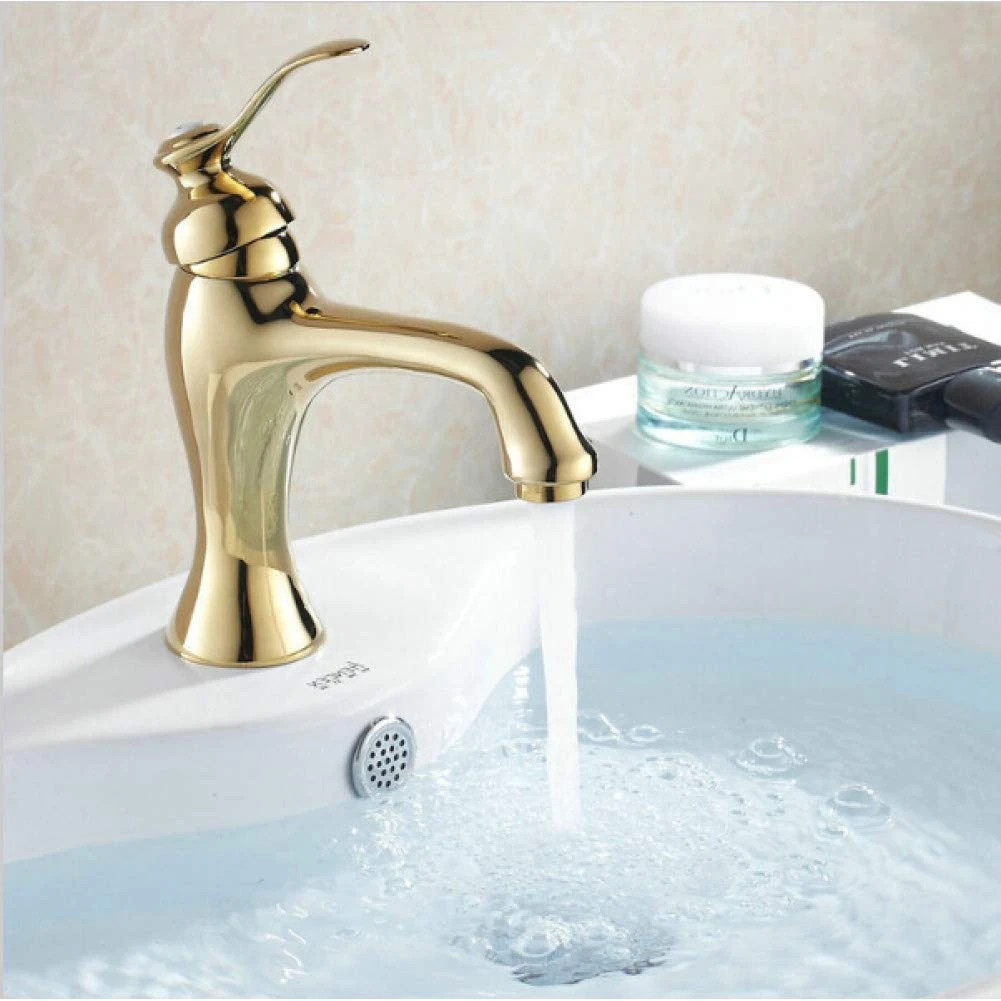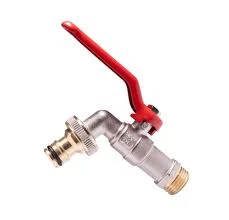Introduction
In modern plumbing systems, quality fittings are essential to ensure longevity and reliability. One such crucial component in sanitary ware is the brass bibcock valve. This valve is widely used in both residential and commercial settings due to its robustness and versatility. But what makes it so indispensable in today’s plumbing? Let’s take a closer look at the characteristics, uses, and benefits of the brass bibcock valve.
What is a Brass Bibcock Valve?
A brass bibcock valve is a type of shut-off valve primarily used to control the flow of water. It is commonly installed on external faucets, often found in gardens or outdoor water sources. These valves allow for simple, on-demand access to water by rotating the handle to control the flow. Made from brass, a highly durable and corrosion-resistant metal, these valves stand up to the wear and tear of everyday use.
The Role of Brass in Plumbing
Why is brass the preferred material for many plumbing fittings, including bibcock valves? The answer lies in brass’s remarkable properties. This alloy, composed mainly of copper and zinc, offers excellent corrosion resistance, which is critical for water-related applications. Brass also provides durability, making it ideal for long-term use in plumbing systems where reliability is crucial.
How Bibcock Valves Work
The mechanism of a brass bibcock valve is straightforward yet effective. Inside the valve is a rotating spindle connected to the external handle. When you turn the handle, the spindle moves, allowing water to flow through the opening. Depending on the design, you may encounter single-turn bibcocks, which open or close the valve in one full rotation, or multi-turn bibcocks, which offer more control by gradually adjusting the water flow.
Applications of Brass Bibcock Valves
Brass bibcock valves are versatile and serve a wide range of purposes:
- Indoor applications include laundry areas, basements, or utility rooms where easy access to water is necessary.
- Outdoor uses are more common, particularly in gardens, where bibcock valves serve as the primary connection point for hoses and irrigation systems.

Types of Brass Bibcock Valves
There are several types of brass bibcock valves designed for specific uses:
- Wall-mounted bibcocks: These are installed directly onto walls, typically for exterior faucets.
- Garden bibcocks: Specially designed for outdoor use, they are built to withstand harsh weather conditions.
- Single and double bibcocks: These refer to how many outlets the valve has, with double bibcocks allowing for two separate water flow controls.
Benefits of Using Brass Bibcock Valves
Brass bibcock valves offer numerous advantages over their counterparts:
- Corrosion resistance: Since brass doesn’t easily corrode, these valves are ideal for both indoor and outdoor use.
- Cost efficiency: Although brass valves might be more expensive upfront, they save money over time due to their durability and minimal need for repairs.
- Heat resistance and weather adaptability: Brass can withstand high temperatures and extreme weather, making it a reliable choice for various applications.
Installing a Brass Bibcock Valve
Installing a brass bibcock valve is a simple process that even homeowners can handle with the right tools. Here’s a step-by-step guide:
- Turn off the water supply to prevent any leaks during installation.
- Prepare the installation area, ensuring the pipe or wall surface is clean.
- Wrap Teflon tape around the threaded portion of the pipe for a secure seal.
- Screw the valve onto the pipe and use a wrench to tighten it securely.
- Turn on the water supply to check for leaks and ensure proper functionality.
Maintenance of Brass Bibcock Valves
Maintaining a brass bibcock valve is critical for its longevity. Regularly check for leaks or wear around the seals. If you notice any issues, such as a loose handle or drips, act promptly to tighten or replace the components. Avoid using harsh chemicals for cleaning, as they may damage the brass.
Brass Bibcock Valve vs Other Materials
When compared to other materials like plastic or steel, brass outshines them in several ways:
- Plastic valves are prone to cracking and may not hold up well under extreme conditions.
- Steel valves can rust over time, whereas brass remains resistant to corrosion.
Common Issues with Brass Bibcock Valves
While brass bibcock valves are reliable, they aren’t immune to issues:
- Leaks can develop due to worn-out washers or seals.
- Seals might need replacing if they become brittle or damaged. Always check the integrity of the seal during regular maintenance.
Environmental Impact of Brass Fittings
Brass is a sustainable and recyclable material, which makes it an environmentally friendly choice for plumbing. Its long lifespan reduces the need for frequent replacements, contributing to water conservation efforts by minimizing leaks and ensuring efficient water use.
How to Choose the Right Brass Bibcock Valve
When selecting a brass bibcock valve, consider the following:
- Size: Make sure the valve fits the pipe size in your system.
- Style: Choose a design that suits the installation area, whether indoor or outdoor.
- Usage: Think about whether you need a single or double bibcock for your particular application.
Cost Analysis of Brass Bibcock Valves
Brass bibcock valves range in price based on size and complexity. For domestic use, the cost is generally lower than for commercial settings, where higher-grade valves may be required. Although brass valves can be pricier upfront, their long-term savings in maintenance and replacement costs make them a cost-effective solution.
Conclusion
In summary, brass bibcock valves are an indispensable part of plumbing, offering durability, efficiency, and cost-effectiveness. Their corrosion resistance, easy maintenance, and adaptability make them an excellent choice for a wide variety of applications. As the plumbing industry continues to evolve, brass bibcock valves remain a staple in both residential and commercial settings, thanks to their reliable performance.


















